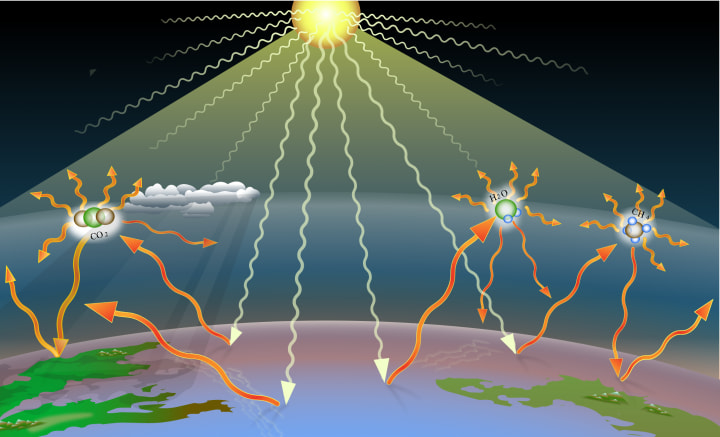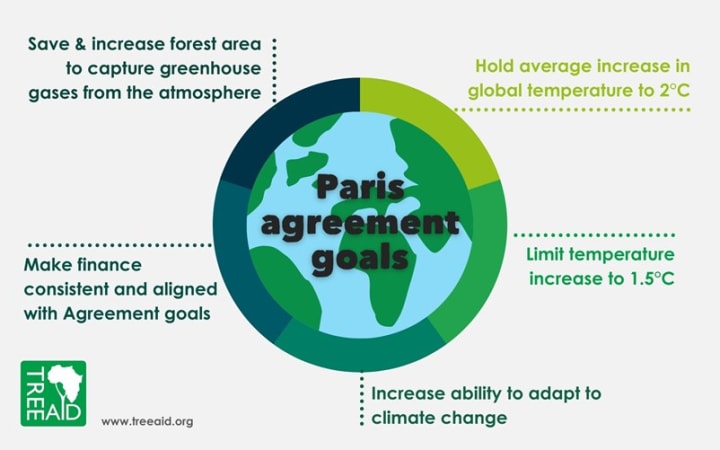Climate Change
A Global Challenge That Demands Immediate Action

Introduction
Climate change is a significant threat to the planet and its inhabitants. It is caused by human activities, such as the burning of fossil fuels, deforestation, and industrial processes. Climate change has a number of negative impacts, including rising global temperatures, melting glaciers, more frequent and severe heatwaves, extreme weather events, extinction of species, and deterioration of biodiversity. It also poses social and economic costs, such as crop failures, food shortages, increased food prices, displacement of coastal communities, water scarcity, and conflicts.

The Science Behind Climate Change
Climate change is caused by the release of greenhouse gases into the atmosphere. Greenhouse gases trap heat, which causes the planet to warm. The main greenhouse gases are carbon dioxide, methane, and nitrous oxide. Human activities, such as the burning of fossil fuels, deforestation, and industrial processes, are the main sources of greenhouse gas emissions.

Evidence of Climate Change
The impacts of climate change are already visible around the world. Rising global temperatures have led to melting glaciers, shrinking ice caps, and more frequent and severe heatwaves. Extreme weather events, including hurricanes, droughts, and floods, have become more frequent, causing devastation in many regions. The delicate balance of ecosystems is disrupted, leading to the extinction of species and the deterioration of biodiversity.

Human Factors Amplifying Climate Change
While climate change is a naturally occurring phenomenon, human activities have accelerated its pace. The burning of fossil fuels for energy production is the largest contributor to greenhouse gas emissions. The transportation sector, industrial processes, and deforestation also play significant roles. Moreover, our consumption patterns, including the throwaway culture and overreliance on single-use plastics, contribute to environmental degradation.

The Social and Economic Costs
Climate change poses not only environmental threats but also significant social and economic costs. Impacts on agriculture can result in crop failures, food shortages, and increased food prices. Coastal communities face the risk of rising sea levels and increased storm surges, leading to displacement and loss of homes. Additionally, changing weather patterns can disrupt water supplies, leading to water scarcity and conflicts. The economic toll of climate change is staggering, with estimates suggesting that it could cost the global economy trillions of dollars by the end of the century.

Global Efforts and Agreements
Recognizing the urgency of the issue, the international community has taken steps to address climate change. The Paris Agreement, signed by nearly every country in 2015, aims to limit global warming to well below 2 degrees Celsius above pre-industrial levels. The agreement encourages countries to reduce greenhouse gas emissions, transition to clean energy sources, and adapt to the impacts of climate change. However, meeting these targets requires enhanced commitment and accelerated action from all nations.

Role of Renewable Energy
Transitioning to renewable energy sources is a key strategy in mitigating climate change. Solar and wind power, among others, offer clean and sustainable alternatives to fossil fuels. Many countries are investing in renewable energy infrastructure, implementing policies to promote their adoption, and incentivizing research and development. Embracing renewable energy not only reduces greenhouse gas emissions but also fosters job creation and economic growth.

Individual Actions and Collective Responsibility
While governments and corporations play a crucial role in addressing climate change, individual actions are equally important. Simple steps like conserving energy, reducing waste, and adopting sustainable transportation options can make a significant impact. Moreover, raising awareness and engaging in collective action, such as participating in climate strikes and supporting environmentally responsible businesses, can drive systemic change.

Conclusion
Climate change represents an unprecedented global challenge that demands immediate action from all sectors of society. The scientific evidence is overwhelming, and the consequences of inaction are dire. To ensure a sustainable future for ourselves and generations to come, we must prioritize the reduction of greenhouse gas emissions, embrace renewable energy, protect ecosystems, and foster international cooperation. By working together, we can create a resilient and thriving planet for future generations, mitigating the worst effects of climate change and preserving our precious Earth.





Comments
There are no comments for this story
Be the first to respond and start the conversation.